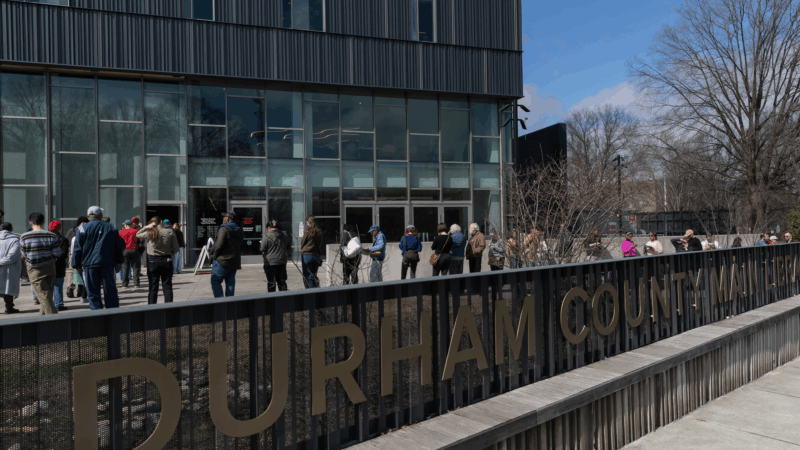Newgrass Mandolin Master Sam Bush Returns to Birmingham
Sam Bush, considered by many to be the father of newgrass, the more progressive form of bluegrass music, brings his band to the Lyric Theatre Saturday night, February 13. Like the founding father of bluegrass, Bill Monroe, Bush grew up on a farm in Kentucky surrounded by a family of musicians. Both fell in love with the mandolin and with traditional music. There the comparison ends. Monroe grew up in the 1920s, while Sam Bush came of age in the era of television that brought the stars of country music right into his home.
“Saturday afternoons, Nashville Channel 4 would run five country music half hour shows with Grand Ole Opry stars,” Bush recalls. “You had the Bill Anderson Show, Ernest Tubb, the Wilbourn Brothers, Porter Wagoner, and then, my favorite at 6 o’clock Flatt and Scruggs came on. Seeing their fingers. It was like a teaching video.”
By the time Sam Bush was a teenager, he was winning national fiddle competitions. As a prodigy on both the mandolin and the fiddle, he was imminently employable, and found work after high school with his first bluegrass band, The Bluegrass Alliance.
“So we played in bars around Louisville and didn’t realize how tight we were getting playing five or six nights a week.” Bush says. It was difficult sledding. “You got to really be tough especially back then, when you had a PA with one or two mics and no monitor speakers. And there wasn’t a quiet audience you ever played for. It’s a bar, and you’re happy to have work,” he says.
The Bluegrass Alliance got good reviews at the few festivals they played, but the band was too traditional for Sam and most of his band mates, who grew up on rock ‘n’ roll. In the fall of 1971, the band dissolved and reformed as the New Grass Revival, a group that would create their own genre of music.
“Well, it was kind of exciting because they were doing something that was so new,” says music photographer Jim McGuire in the documentary, Revival: The Sam Bush Story. “What they were doing was totally different, off the wall, crazy off the wall, and people didn’t know what to think of it. There were all these hippies playing this weird, jazzy bluegrass, but the musicians, they were the ones who realized they were doing something very different and really important,” McGuire says.
After the New Grass Revival passed into history in 1989, Sam Bush spent five years backing Emmylou Harris as a member of her Nash Ramblers. Then, in 1995, he formed the Sam Bush Band. They’ve been a staple of the festival circuit ever since. Their playlist reflects the eclectic taste of their namesake.
B“For me variety is a great part of music,” says Bush. “I don’t want to hear everybody play the same way. I don’t want to hear five bands playing the same thing. I love Talking Heads records. I love Jean-Luc Ponty. One of the greatest things I uncovered that I bought a couple of years ago was a record called Muddy Waters ‘Folk Singer.’ That’s one of the greatest things I’ve heard in my life.”
Bush is a particular fan of reggae legend, Bob Marley. “Hearing Bob Marley and Wailers. It was like this light went off because the first thing that attracted me was not Bob’s voice, not the song, not the bass. It was the rhythm guitar of Bob that sounded like mandolin to me,” Bush says. He discovered complexity in the music. “Then I got to realizing, oh man, the bass doesn’t play like any other thing. The drummer doesn’t play like any other thing. And Bob’s song were just universal,” says Bush.
Bush has completed a new album of original material that he hopes to release in June. While he may not be as famous as Chris Thiele or Emmylou Harris or the Avett Brothers, when you see him play, it becomes apparent that no one has more fun playing music than the father of newgrass, Sam Bush.
North Carolina and Texas have primary elections Tuesday. Here’s what you need to know
The midterm elections are officially underway and contests in Texas and North Carolina will be the first major opportunity for parties to hear from voters about what's important to them in 2026.
Trump promised the MAGA base no new wars. Then he went to war with Iran
President Trump promised his "Make America Great Again" voters an "America First" foreign policy. With the war in Iran, he's testing MAGA world's willingness to be flexible on one of its core beliefs.
Kristi Noem set to face senators over DHS shutdown, immigration enforcement
The focus of the hearing is likely to be on how Kristi Noem is pursuing President Trump's mass deportation efforts in his second term, after two U.S. citizens were killed by immigration officers.
College students, professors are making their own AI rules. They don’t always agree
More than three years after ChatGPT debuted, AI has become a part of everyday life — and professors and students are still figuring out how or if they should use it.
Melania Trump presides at UN Security Council meeting as U.S. attacks Iran
U.S. first lady Melania Trump presided over a U.N. Security Council meeting on Monday focusing on children in conflict, as the United States has joined Israel in attacking Iran.
In Vermont, small town meetings grapple with debate on big issues
Typically concerned with local issues, residents at town meetings in Vermont and elsewhere increasingly use the forum to debate polarizing national and international events.







